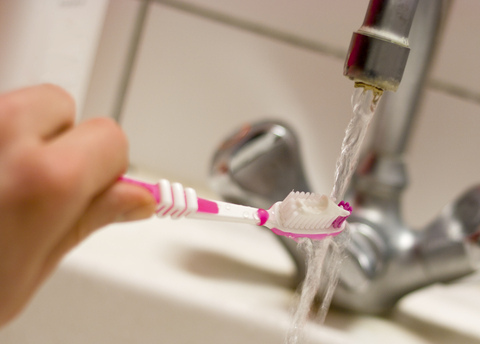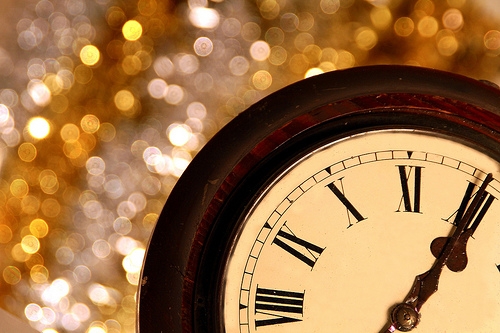
Does your list of New Year’s resolutions for the coming months include reducing your ecological footprint? If so, let’s ring in the year with some basic—and some innovative—dental ideas to help you meet your goal.
This is probably the easiest –and most cost effective!—item on our list. If you leave the water running while you brush, you are watching gallons of water go down the drain every day. Luckily, toothbrushes rely on wrist power rather than water power. Wet your brush before you begin, and use water only as needed to rinse. You’ll save hundreds of gallons of water every year.
And while we’re near your sink, if you like to rinse after brushing and flossing with disposable plastic cups, consider using compostable paper products or a regular drinking glass that you can clean after using.
- Biodegradable/sustainable /recyclable toothbrushes
Some brushes promise to be completely compostable, with handles manufactured from sustainable woods or bamboo, and heads fitted with biodegradable boar bristles. Investigate before you buy, because boar bristles aren’t for everyone. Some users complain about the taste, and boar bristles are harsher than the soft bristles we recommend to protect your enamel and gums. Organic bristles are also more prone to bacteria growth.
If you prefer the consistency and texture of regular synthetic bristles, or wish to avid animal products, you can still opt for a brush with a handle of sustainable wood or bamboo. These brushes also offer PBA-free bristles, bristles made largely from castor oil, or bristles that use natural ingredients in combination with synthetics.
And don’t forget recycling as a possibility to cut down on your plastic use. Toothbrushes are available with handles made from recycled plastic. And once you’re finished with them, these brushes can be recycled again.
- Biodegradable dental floss
This is another innovative take on dental supplies, and one that offers lots of new options. Regular dental floss is usually made from waxed nylon. Biodegradable floss, on the other hand, can be made of silk or plant materials, and coated with beeswax or plant-based wax. Some of these biodegradable flosses even come in refillable or compostable packaging.
If you’re incorporating organic foods into your diet, you know that organic options are more easily available than ever before. And now there are more organic toothpastes available, as well. Natural toothpastes can be found which are vegan, fair-trade sourced, and preservative- and artificial ingredient-free.
Before you buy, though, do discuss your choices with Dr. Jason Jones. Why? Because many natural toothpastes are formulated without fluoride, a mineral shown to prevent cavities in study after study. Which leads us to . . .
- See Your Dentist Regularly for Checkups and Cleanings
Along with your daily dental hygiene routine, don’t forget to make regular appointments for examinations and professional cleanings at our Buffalo, NY office. Dr. Jason Jones can help you discover the best ideas for products and practices which are good for you and good for the planet, for a lifetime of natural, sustainable smiles.




